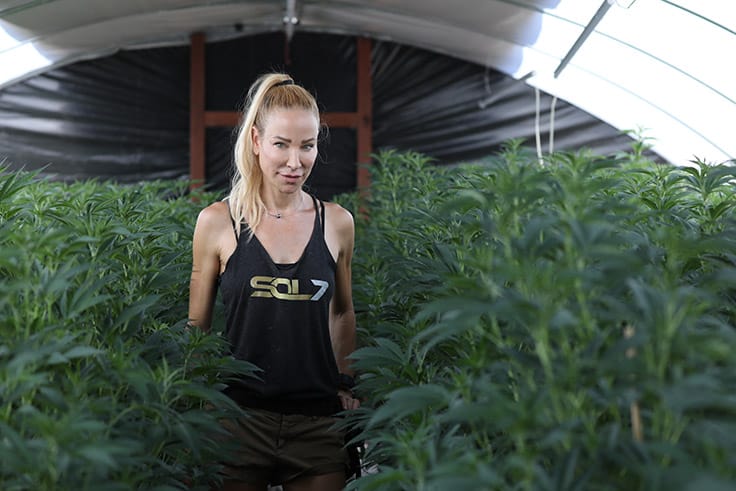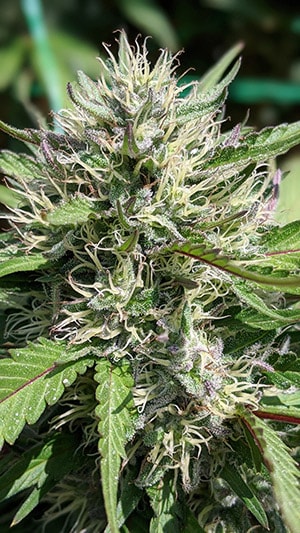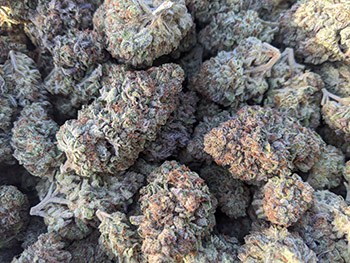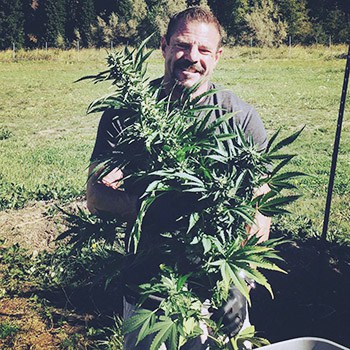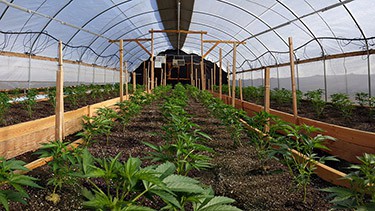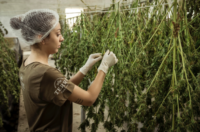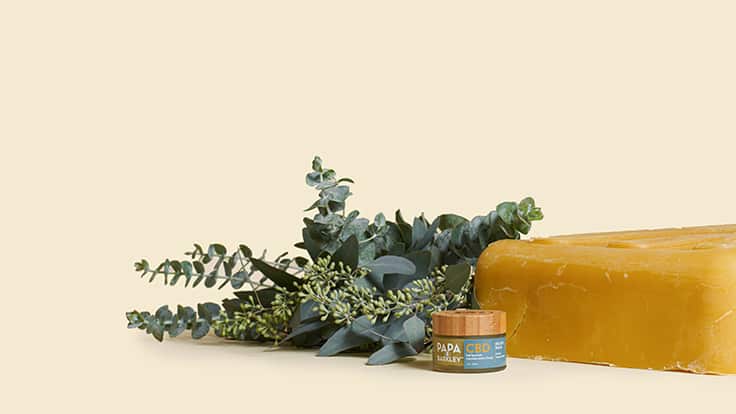
Courtesy of Papa & Barkley | papaandbarkley.com
When Evelyn Wang was named the CEO of California-based cannabis and CBD wellness company Papa & Barkley in January, she joined the space after 15-plus years of senior management experience in the beauty sector and a lifetime of cultural heritage.
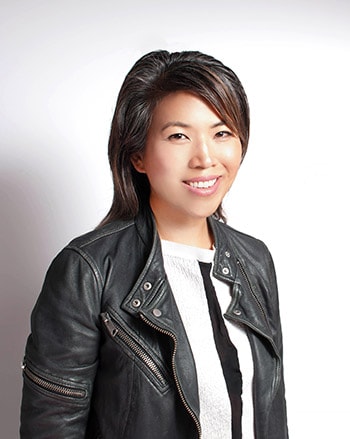
Courtesy of Papa & Barkley | papaandbarkley.com
Born in the subtropical Taiwan capital city of Taipei, Wang emigrated to Vancouver, British Columbia, Canada, when she was 18 months old. She earned her Master of Business Administration from the University of Southern California and became a U.S. citizen nearly two decades ago.
Wang’s senior management experience came while leading premier beauty brands at L’Oréal and Estée Lauder. Most recently, she served as chief marketing officer for Milani Cosmetics, a leading international color cosmetics brand. Her crossover from beauty to cannabis is pillared by her expertise in building brands as well as her fundamental principles.
With a personal commitment to plant-based medicine, wellness and sustainability, Wang aligns with Papa & Barkley’s core values, said Adam Grossman, who founded the company five years ago after he formulated a homemade cannabis balm with a crockpot in his kitchen that eased his father’s back pain that had left him bedridden. That balm, in conjunction with other therapies, got “Papa” off hospice and able to return home, he said. “Barkley” is the family’s loyal pit bull.
“The board and I are confident that Evelyn is the right leader to build on our momentum and brand, adding depth to our stellar executive team,” Grossman said in a press release announcing Wang’s appointment to CEO, a position Grossman previously held. Papa & Barkley offers THC products in California and ships CBD products to all 50 states.
Here, Wang talks business in her transition to the cannabis and CBD space, as well as her cultural background as it relates to the space in correlation with Asian American and Pacific Islanders (AAPI) Heritage Month.
Editor’s Note: This interview has been edited for style, length and clarity.
Tony Lange: What attracted you to Papa & Barkley to take on the CEO role?
Evelyn Wang: I’ve always been very interested in things like plant medicine, wellness and health, and have always personally aligned with those different types of industries. Particularly with cannabis, it was something that I had thought was interesting for a while and thought how amazing it would be to enter an industry that you can help shape that’s really still in its nascency. So, when I was recruited for Papa & Barkley, I really learned about the brand story and how Adam Grossman, our founder, created this product for his own father. Adam was desperate to find something that could help his father get out of hospice and turned to cannabis as something that could really help him. I just felt that was such a relatable story. It’s so authentic. It speaks to so much that I find resonates with me. He was motivated to find something to help someone and then ending up finding it in cannabis. Just knowing that there’s so many other solutions that we can still help with, I think that’s a great mission to be a part of.
And then just learning everything about Papa & Barkley; this is a company that goes through extraordinary lengths to ensure our product quality. We actually make things more expensive just to make sure that we’re really delivering to consumers a full-spectrum, full-plant, solventless product that is truly effective. So, all of that, plus the idea that it was this company that had so much incredible runway to scale and grow—those are all things that I definitely cannot say no to.
TL: After more than 15 years leading beauty and cosmetic brands, were there any other specific reasons why you decided to switch things up and join the cannabis and CBD space?
EW: What’s interesting is there’s a lot of crossover between beauty and cannabis. And there actually are quite a lot of people who have this twin beauty, cannabis background. I think it’s because both industries attract people who are super passionate, creative and able to kind of accept and deal with things that are not the norm. They like things that are out of the box. I would say that was my perception from the outside, and that’s definitely true now. I actually love how this is the industry for individuals who have a lot of passion for what they do and are not necessarily people who walk a very predetermined path. They’re all people who have very unique and different backgrounds. So, I love being in that type of environment.
TL: Why do you personally have a deep and personal commitment to plant-based medicine, wellness and sustainability?
EW: These are, I think, core issues of our time. And I think they’re all connected. I think that we have a health crisis in the country. I really believe that. And I think that so often we’re taught to look at very symptomatic types of solutions, very pharmaceutical type of solutions, and obviously we need those things. But I do think there’s so much room for just understanding health from a holistic level, understanding how everything works together as a system. And, to me, plant-based medicine is a huge part of that. I think you truly are what you eat; you truly are what you consume.
TL: Has your experience as the chief marketing officer of Milani or senior management experience leading beauty brands like L’Oréal or Estée Lauder helped you in your current position at Papa & Barkley?
EW: Yes, definitely. Beauty is very much about telling a great story. It’s telling a great story, telling it visually, showing the product efficacy. Those are all things that I think are so applicable to the product we’re selling at Papa & Barkley. Even Adam’s original story is a testimonial story about how cannabis worked as a solution for his father. So, it’s very much a category where how you talk about a product is so important.
And then I think that beauty is a category that really has learned how to harness the power of social media influencers. I think that is something that we can plug into in the cannabis space. Because, again, if you think about it, it’s about building a community of people who are so passionate about your product that they want to tell others about it. And then I also see a lot of things I have to learn, for sure. I see a lot of ways that the background I have can hopefully bring a lot of best practices to Papa & Barkley.
TL: Since becoming CEO in January, what have you been primarily focused on in terms of helping Papa & Barkley move forward as a company?
EW: I think that product innovation is always the lifeblood of any company. So, we have been spending a lot of time on getting our product innovation ready, not just for 2021, but into 2022 and even starting to think about ideas for 2023. That’s a big one where we’re really trying to double down on our innovation and make sure we have a very robust roadmap, not only for our California market but also nationally. We see a really big opportunity for us, the brand, to expand our national direct-to-consumer e-commerce business.
And then the other thing is that we also have the products in our national seat, which are the same quality, the same sourcing, the same testing that we do company wide. And we can use our B2C [business-to-consumer] to speak to a consumer in New York, in Florida, in Iowa. We can really start to already build out the Papa & Barkley brand using our national CBD products even ahead of federal legalization of cannabis products as a whole. We’re definitely doubling down efforts there because we think the opportunity is feeling the brand into a nationally recognized wellness brand powered by cannabis.
TL: I saw that you earned your MBA from USC—are you originally from Southern California?
EW: No, I was actually born in Taipei, Taiwan. And I grew up in Vancouver, Canada. So, I am American, but I became an American almost 20 years ago. I kind of have been all over the map a little bit.
TL: Have you personally or indirectly been impacted by factors associated with the Stop Asian Hate movement in 2021?
EW: Yes. First, it’s been a weird time that has been at times personally frightening, saddening, just alarming in terms of actually having to fear for your own personal safety in public spaces. That is something that was a heightened thing for myself personally in 2021, you know, having a sense of like, ‘Should I be taking extra safety precautions in certain situations?’ On that point, it impacted me in that way. It definitely also made me think more reflectively as well in terms of, ‘What is my role in this?’ In my position, what are the steps that I should be taking? What do I have to do versus what do I feel I should do? Because you feel this sense of responsibility that you have to be a voice and sometimes that’s tiring. Sometimes, you don’t want to have to represent. But regardless of whether you want to or not, you’re a face that people want to know, ‘Hey, what are you thinking about this? What is your stance on this?’ So, yeah, I would say from just a personal safety perspective I have been impacted. Also, I’ve reflected on how I can communicate my personal views on this in a way that can help.
TL: What’s your perspective on the importance of increasing AAPI diversity in the cannabis and CBD space?
EW: I’ve always had this feeling, regardless of being in cannabis or not—I think diversity is something that we need in every category, every industry. If you have a category, if you are trying to appeal to a diverse consumer base in any type of intelligent way, I think you need to have a diverse base of people inside your company internally to be able to connect with that consumer. If you speak to any cannabis or CBD dispensary owner these days, they too will tell you that the consumers who are coming into dispensaries are changing. There are many different types of demographics that you might not have seen even three to five years ago that are now in dispensaries.
So, cannabis is really starting to appeal to a broad base of people. I think that is even more why we need to have diversity in this industry. There’s so much room for innovation in the industry still. It’s still one thing that attracted me to the industry is that it’s very young. We’re only at the tip of the iceberg in terms of the type of innovation we can bring. So, the more different ideas we have, the better for the industry.
In general, I would say, yes, most people from AAPI backgrounds have probably come from a more culturally conservative background. There is probably more cultural hesitancy around an industry that’s still not federally legalized. But I think the more people who can enter the industry and sort of be an ambassador back into their communities, the better for de-stigmatizing the industry.
TL: What’s your perception on cannabis and how it relates to either your heritage or the AAPI community in general?
EW: It’s been so interesting for me to actually delve into the history of cannabis myself and learn and discover that cannabis, if you want to look at it historically, has actually been part of Asian culture for thousands of years. It was a major crop grown in China in like 4,000 B.C. There’s definitely a historical connection there for sure.
Regardless of that, it’s not about how far back in your culture cannabis goes. You don’t have to be able to say ‘Oh, my people were part of cannabis thousands of years ago’ to say that you belong in the industry. I think it’s really a sense of being able to just say, ‘Yeah, I’m interested in cannabis and I belong here. I have a stake and I have a voice at the table.’ That’s really how I view it. I think that cannabis can be for everyone. And I definitely think while there is a specific connection for Asians to cannabis, regardless of that, they belong in the industry.





